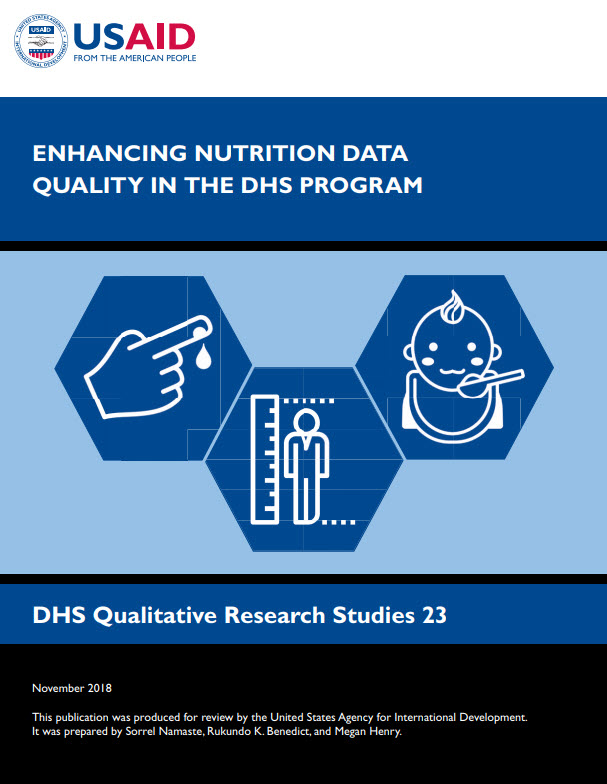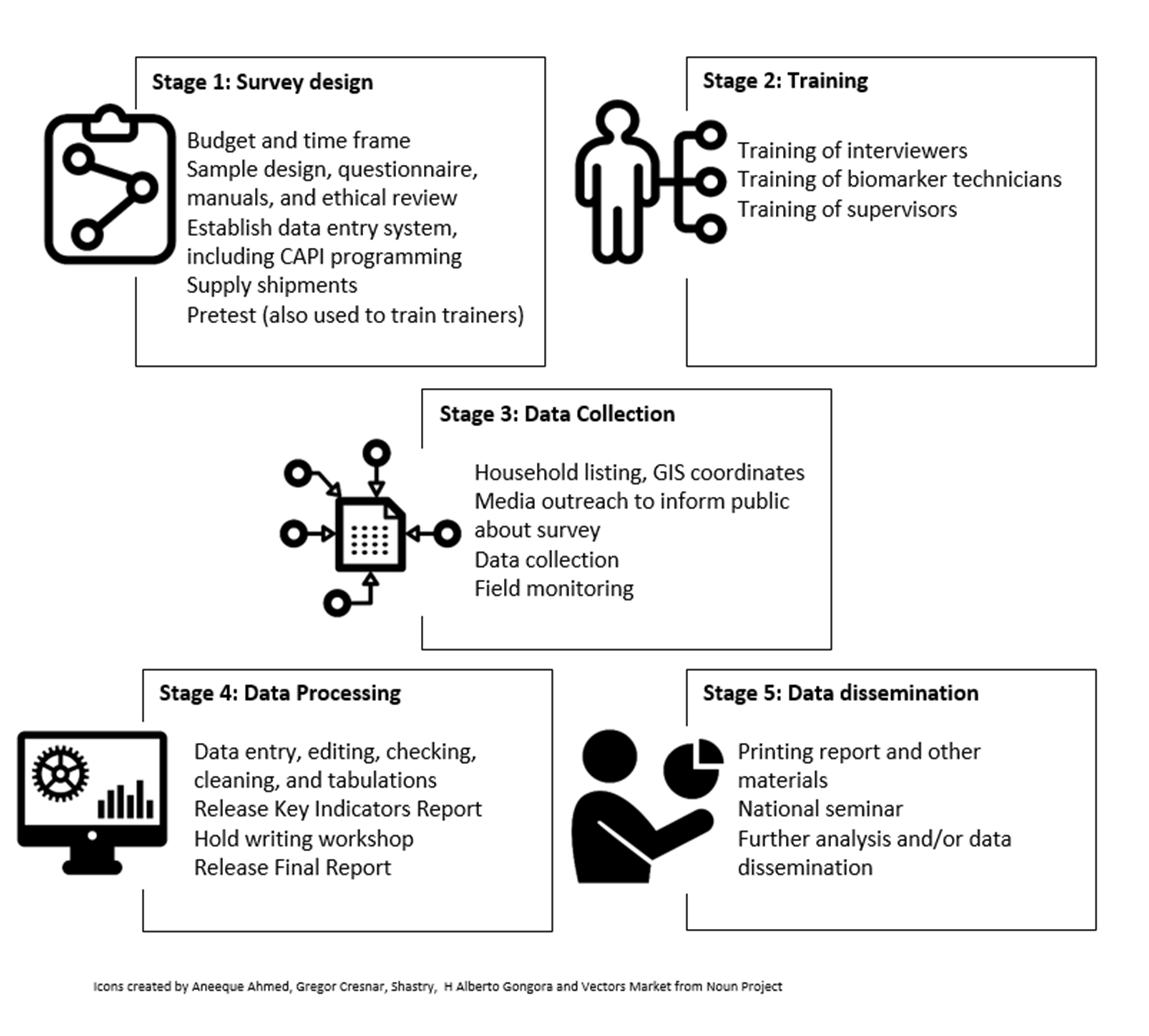Strengthening Nutrition Data Quality at The DHS Program

A health technician tests a child for anemia during a survey training. © 2018 ICF/Sorrel Namaste
“Everything bad can go wrong at collecting the sample, and you can’t get any good results from a bad sample. ” – Informant from the Enhancing Nutrition Data Quality Report
Data for decision-making is vital as countries work to reduce the burden of malnutrition and to measure progress towards the Sustainable Development Goals and the Global Nutrition Targets 2025.

The DHS Program, a leading source of nutrition data globally, has invigorated its focus on the quality and depth of the types of nutrition data collected. To this end, a qualitative study was undertaken to identify how to enhance the quality of nutrition data. Interviews were conducted with 50 experts internal and external to The DHS Program, and DHS staff participated in focus group discussions. Informants highlighted critical challenges that exist in collecting anemia, anthropometry, and infant and young child feeding data in large surveys while also offering solutions to strengthen data quality.
The outcomes from the study are summarized in the report “Enhancing Nutrition Data Quality in The DHS Program” which calls for the implementation of 32 recommendations. The DHS Program is already addressing most of these recommendations (21 out of the 32) and plans to take up additional recommendations throughout DHS-8. These include revising hemoglobin cutoffs in STATcompiler, working with the WHO to develop a technical error of measurement value for passing an anthropometry standardization exercise, and testing new procedures and indicators for real-time monitoring of fieldwork. Future blog posts will explore the application of these recommendations across the stages of a DHS survey.
Recommendations to enhance nutrition data quality were identified across The DHS Program survey stages. © 2018 ICF
The DHS Program is committed to continuous quality improvement and is uniquely positioned to implement new data quality measures. Yet, the report is not only intended to inform operations at The DHS Program. The lessons learned are applicable to wider audiences involved in the collection and use of nutrition data throughout the world. Strengthening the quality of nutrition data will lead to improved data-driven nutrition actions.
Written by Sorrel Namaste and Rukundo K. Benedict

Dr. Sorrel Namaste is the Senior Nutrition Technical Advisor for The DHS Program. She is an epidemiologist with expertise in nutrition assessment and implementation research.

Dr. Rukundo K. Benedict is the Nutrition Technical Specialist for The DHS Program. She is a public health nutrition practitioner with expertise in infant and young child feeding (IYCF), water-sanitation hygiene (WASH), community health systems, and the delivery of integrated interventions in low-resource settings.


